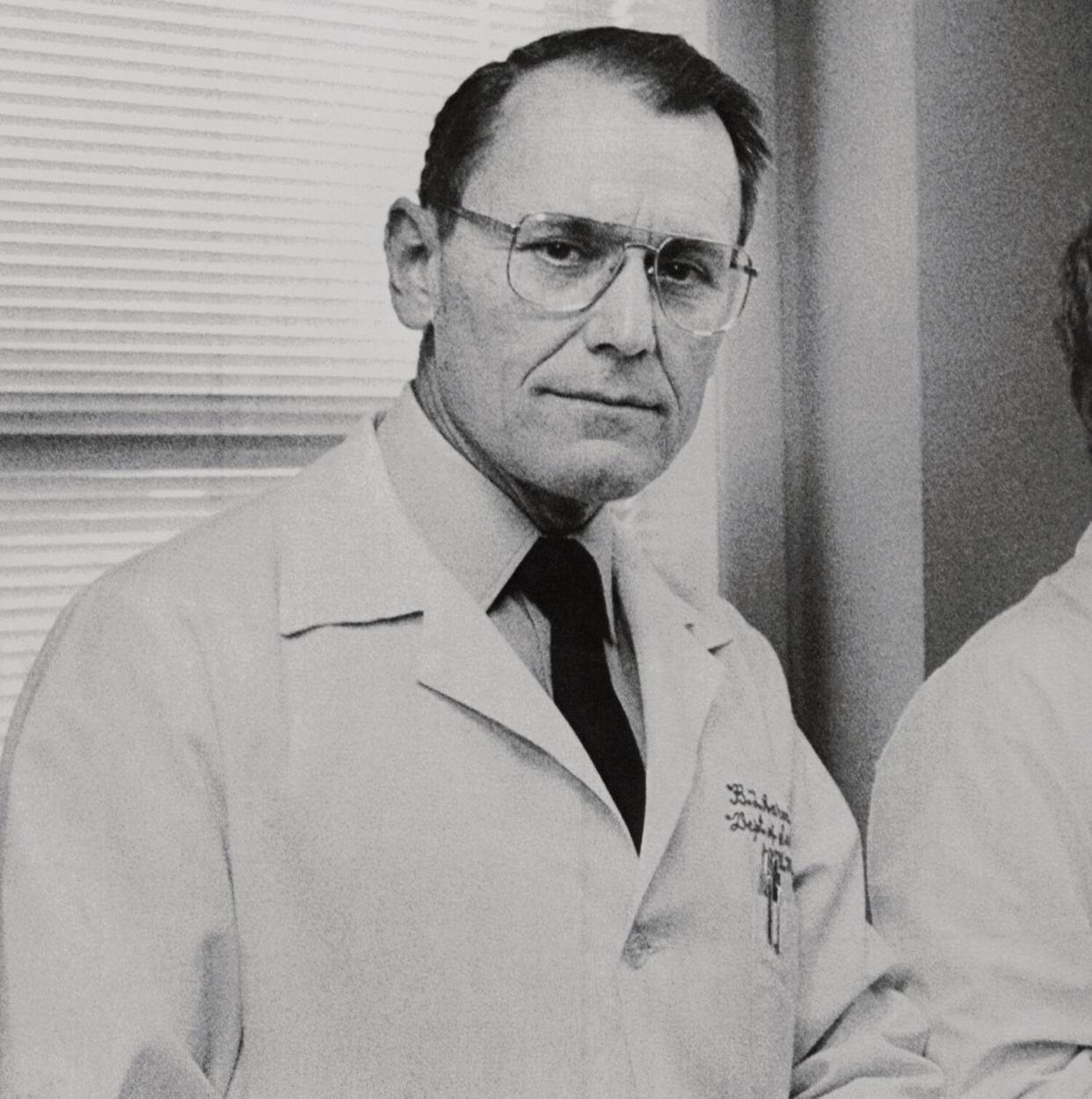Reagan's Surgeon Recalls Pressure of Pulling Bullet from President's Chest After Assassination Attempt

- Oops!Something went wrong.Please try again later.
- Oops!Something went wrong.Please try again later.
- Oops!Something went wrong.Please try again later.
Bettmann/Getty Dr. Benjamin Aaron
Dr. Benjamin Aaron, the surgeon who performed a life-saving procedure on former President Ronald Reagan after an assassination attempt, is recalling the operation 40 years later.
On March 30, 1981, John Hinckley Jr., who was 25 at the time, shot Reagan, as well as White House Press Secretary James Brady, a Secret Service agent and a police officer in front of a Washington, D.C., hotel while television cameras rolled.
Reagan, then 70 years old, was taken to George Washington University Hospital, where Aaron, then 47, and his medical team decided to remove the bullet from Reagan's chest.
"[The bullet] was situated in a pretty vile place. The first thing that went through my mind was, 'Is this a salvageable case?' " Aaron told ABC News, adding that he thought to himself at first: "Oh my gosh — what have I gotten myself into?"
Aaron remembered that Reagan cracked a joke while on the operating table before the procedure. He said, "The president opened his eyes, hauled himself up on his shoulders, hunched himself up on his elbows, reached down and pulled the oxygen mask off his face, looked around and said, 'I sure hope all of you out there are Republicans!' "
The "operating clock was ticking," however, and Aaron recalled the pressure of the "pretty important" issue at hand.
Said Aaron, "Each minute seemed like an hour."

Corbis via Getty President Ronald Reagan
Never miss a story — sign up for PEOPLE's free daily newsletter to stay up-to-date on the best of what PEOPLE has to offer, from juicy celebrity news to compelling human interest stories.
"If I had said, 'I'm staying here till tomorrow to get that bullet out,' they probably would have deferred to that. I just had this niggling feeling it wouldn't be a good idea to wake up the next morning and see the three-inch headlines in the paper which said, 'Doctor Failed to Remove the Bullet from the President,' " said Aaron.
"Two bullets and that would've been the end of it," he said of the near-fatal shooting. "It was fortunate for Reagan — and in some degree fortunate for [Hinckley], because if he had [killed] the president, he'd never see the light of day."
The surgeon also explained how First Lady Nancy Reagan reacted in the intense aftermath of the assassination attempt. "She was a brick. She really held it together pretty well ... She was concerned. I'm sure she was," he said.
In 2004, Reagan died at age 93 in Bel Air, California, of complications from Alzheimer's disease. The former first lady died in 2016.
RELATED VIDEO: Dennis Quaid Can Sense the Spirit of Reagans on Set of Biopic: 'You Can Really Feel It Here'
Late last month, U.S. District Court Judge Paul L. Friedman ruled that all restrictions on Hinckley's release will be removed in June 2022, citing findings that Hinckley — who was found not guilty by reason of insanity at the end of a federal trial in 1982 — no longer shows symptoms of mental illness or any inclination for violence.
He had been living on his own for several years, under a list of conditions, after decades in a mental health hospital. Hinckley, who was diagnosed with acute psychosis, was infatuated with Jodie Foster at the time and had hoped the act of violence would get the actress's attention.
Reagan's daughter Patti Davis, 68, wrote an emotional op-ed in The Washington Post about recollections of her father and three others being shot outside a hotel in Washington, D.C.
"I understand struggling for forgiveness, but it's like peering out from between the prison bars. I don't believe that John Hinckley feels remorse," she wrote. "He and his attorney have worked the system from the beginning and, finding a judge who was sympathetic to them, made this day inevitable."
Hinckley's attorney Barry Levine told PEOPLE that he and his client are "very sympathetic to the feelings of Ms. Davis and of her family." Asked for a reaction the op-ed by Davis, Levine also said he understands she is "justifiably emotional."

